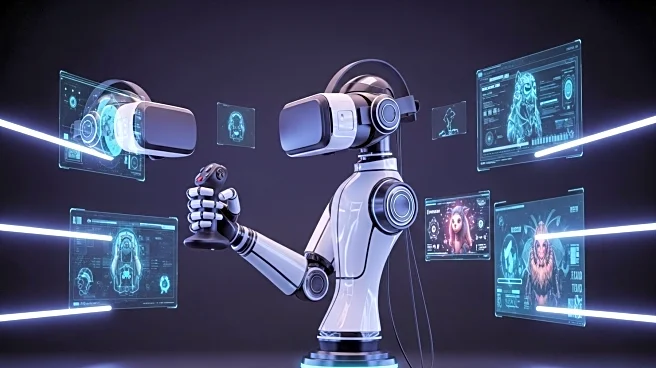What's Happening?
A recent survey by the organization behind the Tokyo Game Show reveals that over 50% of Japanese video game developers are now incorporating AI into their production processes. The 2025 CESA Video Game Industry Report indicates that 51% of developers use AI for various tasks, including visual assets, story and text creation, and programming support. Major companies like Sega, Capcom, and Level-5 participated in the survey. This trend aligns with global practices, where AI is increasingly used in game development despite concerns from workers about potential job displacement.
Why It's Important?
The integration of AI in game development represents a significant shift in the industry, potentially enhancing creativity and efficiency. AI can streamline production processes, reduce costs, and enable developers to create more complex and engaging games. However, there are concerns about the impact on employment, particularly for roles traditionally filled by humans, such as voice acting. The ongoing debate about AI's role in creative industries highlights the need for balance between technological advancement and preserving the human element in game development.
What's Next?
As AI continues to be adopted in game development, companies may need to address concerns about job security and the ethical implications of AI use. The industry might see further negotiations and agreements, similar to the SAG-AFTRA strike, to protect workers' rights. Companies like Sony and Nintendo emphasize the importance of maintaining a human touch in game creation, suggesting that AI should support rather than replace human creativity.
Beyond the Headlines
The growing use of AI in game development could lead to new business models and opportunities for innovation. It may also prompt discussions about the ethical use of AI in creative industries and the need for regulations to ensure fair practices. As AI technology evolves, the industry will likely continue to explore its potential while addressing the challenges it presents.











